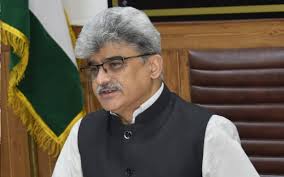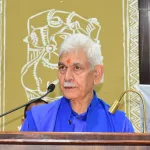Srinagar, Aug 19: Chief Secretary Atal Dulloo chaired a meeting to review the progress of his initiative aimed at creating a comprehensive skilling ecosystem across Jammu and Kashmir, with the goal of ensuring inclusive ‘Skilling for All’. The meeting was attended by senior officials, including the Commissioner Secretary of Labour & Employment, the MD of Skill Development Mission, the DG of Budget, and other concerned officers.During the session, the Chief Secretary appreciated the department’s swift development of a detailed skilling blueprint, which was prepared shortly after a stakeholders’ conference held in July. He emphasised the importance of maintaining this momentum and encouraged continuous engagement with all stakeholders to strengthen and refine the framework. Dulloo advised holding multi-stakeholder discussions involving institutions such as IIT Jammu, IIM Jammu, agricultural universities, NABARD, and J&K Bank to make the initiative more effective on the ground.Kumar Rajeev Ranjan, Secretary of Labour & Employment, provided insights into recent efforts, including a two-day conference on ‘Transforming Skilling Ecosystem in Jammu & Kashmir,’ which brought together seven government departments, six industry partners, four academic institutions, and over 100 delegates. The valuable suggestions gathered during this event were compiled into a comprehensive report to aid in strategy formulation. Follow-up discussions involved institutions like IIT and IIM to determine the next steps, and the department has begun analysing available tools and equipment to facilitate implementation.The department also undertook surveys to assess the strengths and weaknesses of existing institutions, the needs of industries, and the aspirations of youth. These surveys aimed to gather feedback on curricula, entrepreneurial interests, and barriers faced by youth. The skilling plan itself is structured around four main pillars aimed at achieving specific objectives. The first pillar focuses on universal skilling, with foundational vocational courses being introduced early in schools. These courses include modules on coding, AI, communication, life skills, and problem-solving, along with career pathway guidance. To foster innovation and creativity, annual technological festivals and competitions are planned, organised in collaboration with IIT Jammu.In higher education institutions, the concept of ‘Career Launch Pads’ will be implemented to equip students with skills like website design, digital marketing, data analytics, and tourism-related skills. These will be further supplemented by a three-month ‘College Finishing Skills’ boot camp that aims to improve CV writing and interview skills.Apprenticeships and internships will be integrated into degree programmes, with skill courses earning credit points, while the ‘Udaan Scholarship’ will incentivise meritorious students to prepare for competitive exams through partnerships with schemes like PM-NAPS and PM-Internship. The plan also includes training youth for international placements, with curricula aligned to international standards and certifications such as IELTS, NCLEX, and AWS, alongside foreign language training and the establishment of international placement cells.The initiative also emphasises industry-ready skills through curriculum upgrades, modernisation of tools and equipment, and faculty development programs. The upgradation of ITIs under a hub-and-spoke model, in collaboration with industry, and dual training models—combining classroom and on-the-job training—are key components.For effective monitoring, a ‘Kaushal Samiksha Kendra’ modelled on Gujarat’s Vidhya Samiksha Kendra will be established, utilising a 6A methodology—covering attendance, assessment, certification, IT-enabled administration, accreditation, and personalised counselling—powered by AI for efficiency. The department has delineated clear timelines for the phased implementation of these initiatives.








